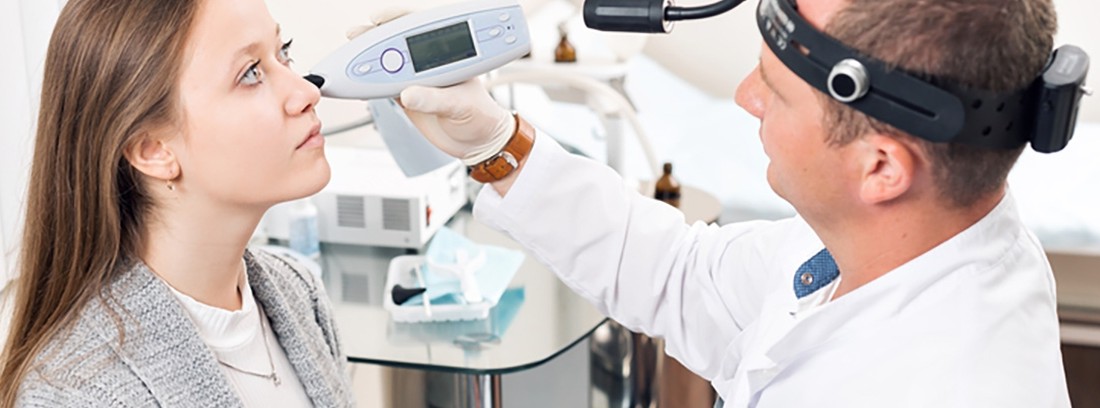Nasal function studies

Alternative names
Nasal function tests
Definition
Set of diagnostic tests belonging to the field of Otorhinolaryngology that allow studying the different functions in which the nasal organ (nose) is involved.
The nose is a complex and complete organ that intervenes in processes as important to the human body as respiration (by heating and humidifying the breathed air, adjusting the inspired and expired air flows, etc.), taste and smell. There are different tests that allow studying each of these different functions; thus, and depending on the function we want to investigate, we can classify nasal function tests as:
Tests that study the respiratory function of the nasal organ such as: anterior rhinoscopy, posterior rhinoscopy, nasal endoscopy, study of ciliary movement, study of mucociliary drainage, nasal smear, rhinomanometry, acoustic rhinometry ...
Tests that study the gustatory function of the nasal organ such as: gustometry.
Tests that study the olfactory function of the nasal organ such as: olfactometry.
Other tests such as: imaging studies (radiography, magnetic resonance, tomography ...), nasal tissue biopsy or allergy tests.
How is the study done?
The study of nasal function is carried out in Otorhinolaryngology or Allergology Units.
The number of tests to be carried out will depend on the reason why the study is carried out, not all tests are usually necessary in the same patient.
Preparation for the study
The specialist should initiate the patient if any type of prior preparation is necessary for each test before it is performed.
Risks and contraindications of the study
It will vary depending on the test performed, in general it is usually about assumable risks and there are usually no significant contraindications to its performance.
What is the study done for?
Nasal function tests are widely used in the field of Medicine as they allow the detection of respiratory, olfactory and / or taste alterations and identify whether it is an alteration whose cause is located in the nasal organ or on the contrary in Another location.
(Updated at Apr 14 / 2024)